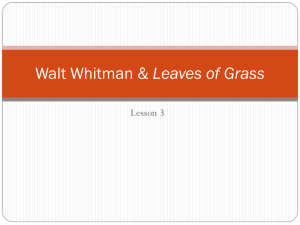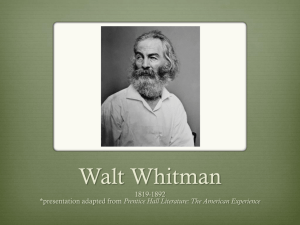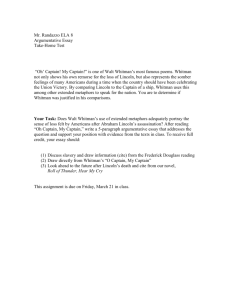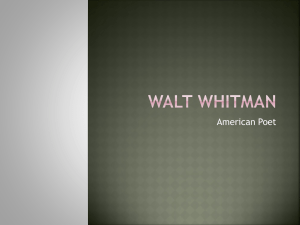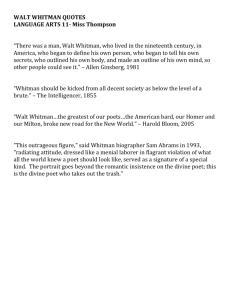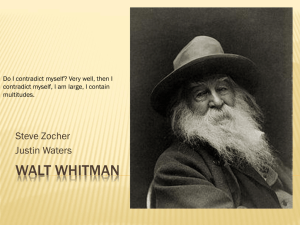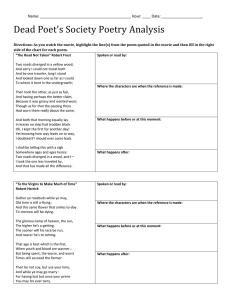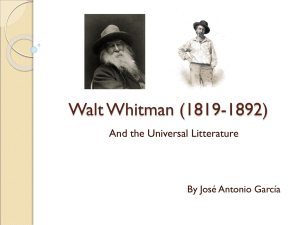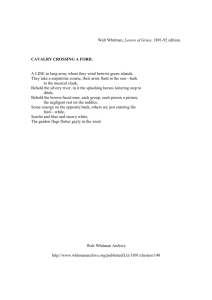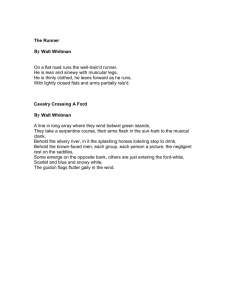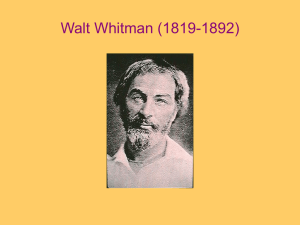Walt Whitman Transcendental Poet
advertisement
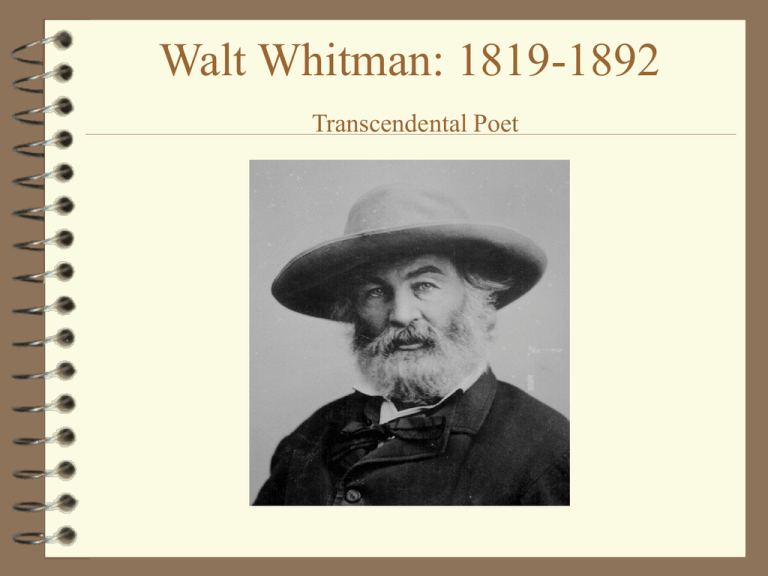
Walt Whitman: 1819-1892 Transcendental Poet Early Childhood: Born on Long Island & raised in Brooklyn, NY. Left school at age eleven to work as an office boy. By 12 he was working in the printing office of a newspaper. By 15, he was on his own. Became a newspaperman & editor of Brooklyn Eagle but was dismissed in 1848 due to his opposition to slavery. Traveled America: Traveled USA & began to write his observations of America – worked as journalist, carpenter, school teacher, as well as a variety of other jobs. Walt Whitman Bridge Philadelphia, Pennsylvania A new form of poetry Impressed by a comment made by Emerson about a new kind of American poet emerging, Whitman began jotting down ideas and scraps of poetry. “His work broke every poetic tradition of rhyme and meter as it celebrated America and the common man.” Prentice Hall Poetry was termed Free Verse by critics – Define Free Verse 1855 – 1st book of poetry Leaves of Grass published – Leaves of Grass 1st edition had only 12 poems – unsigned & untitled. Book was so controversial that publishers would not publish it, so Whitman published it himself. Critics attacked the subject matter & abandonment of traditional poetic devices and forms The Saturday Review (a literary magazine) told readers to BURN the book if they ran across a copy. Whitman embraced by Transcendentalists. Why might they have been attracted to Whitman? Whitman revised his volume of poetry Leaves of Grass until his death. 9 editions - 383 poems in book. The essence of his poetry Again, Whitman wrote solely in free verse - the first American poet to do so. Whitman’s poetry captures the spirit & essence of American people, life, and political activism. “Today, he is widely recognized as one of the greatest and most influential poets the US has ever produced.” Prentice Hall Whitman proclaimed himself the “National Poet of the United States.” Most popularly known is “O Captain, my Captain” his tribute to Abraham Lincoln. 193. O Captain! My Captain! 1 O CAPTAIN! my Captain! our fearful trip is done; The ship has weather’d every rack, the prize we sought is won; The port is near, the bells I hear, the people all exulting, While follow eyes the steady keel, the vessel grim and daring: But O heart! heart! heart! O the bleeding drops of red, Where on the deck my Captain lies, Fallen cold and dead. 2 O Captain! my Captain! rise up and hear the bells; Rise up—for you the flag is flung—for you the bugle trills; For you bouquets and ribbon’d wreaths—for you the shores a-crowding; For you they call, the swaying mass, their eager faces turning; Here Captain! dear father! This arm beneath your head; It is some dream that on the deck, You’ve fallen cold and dead.
